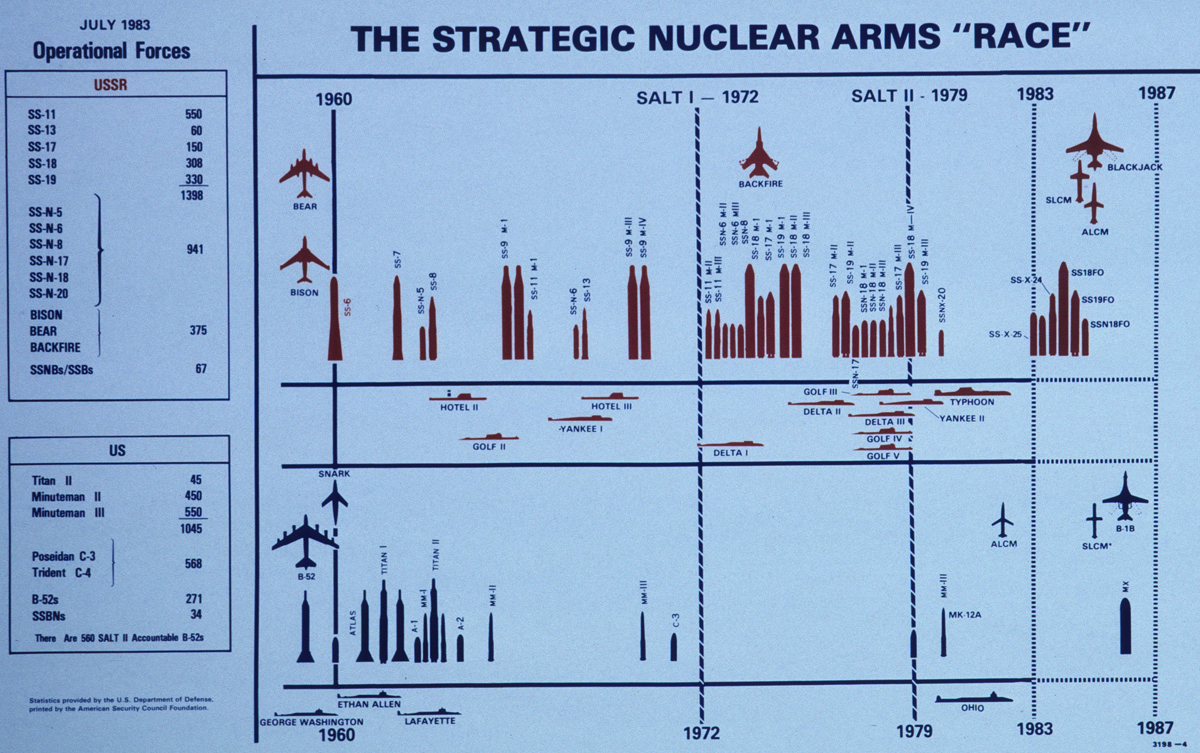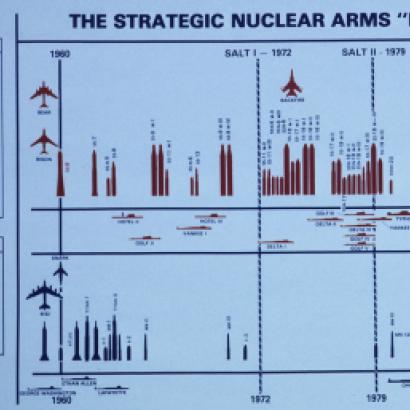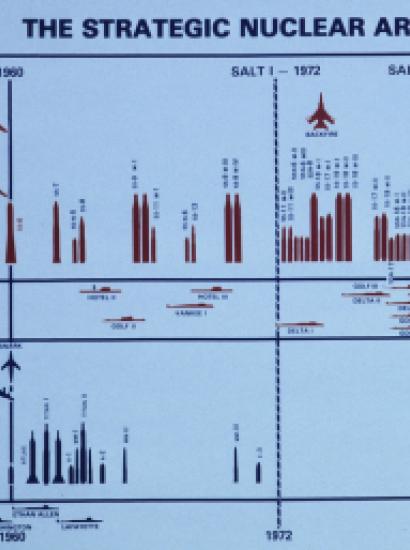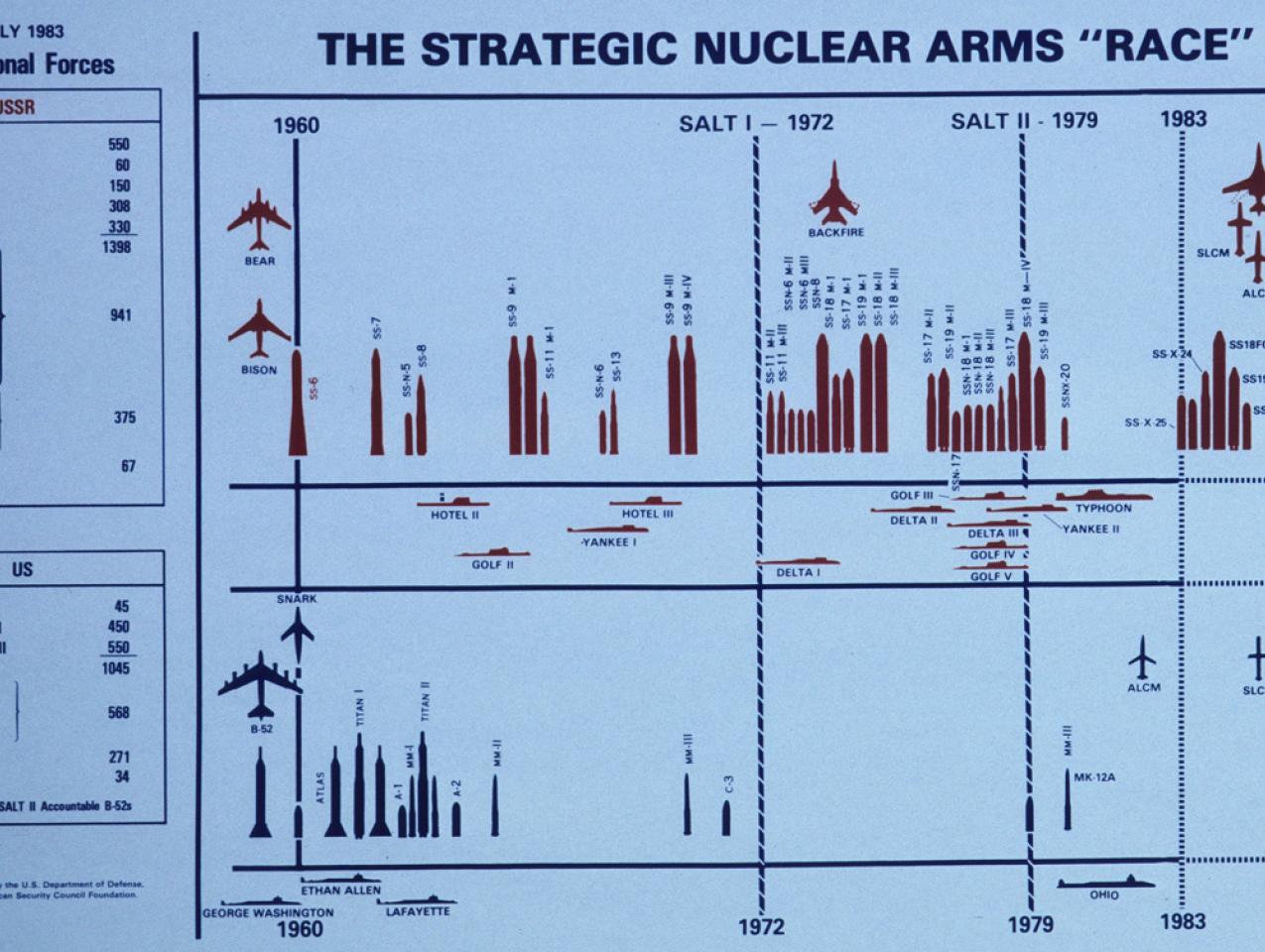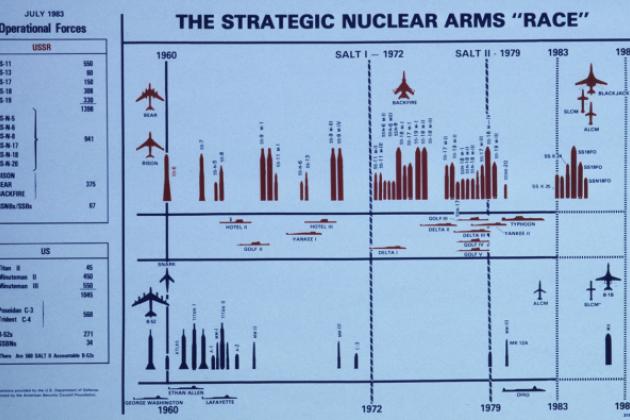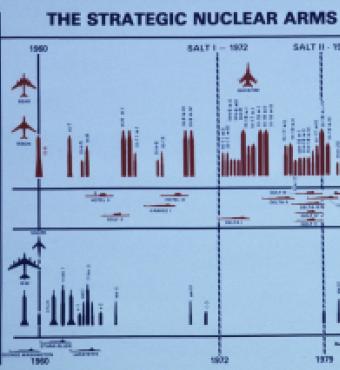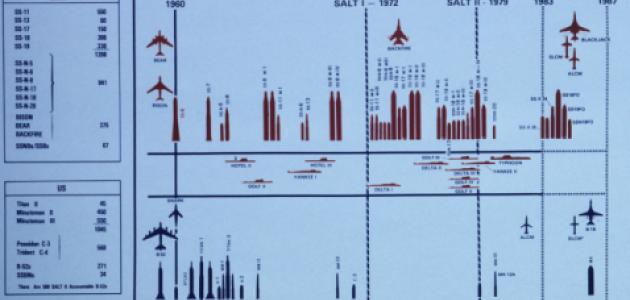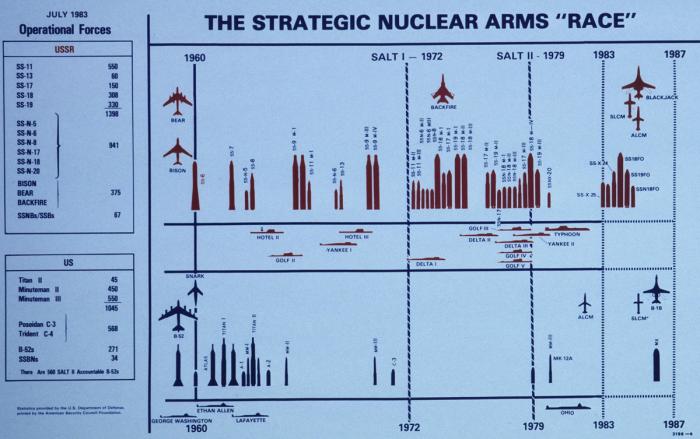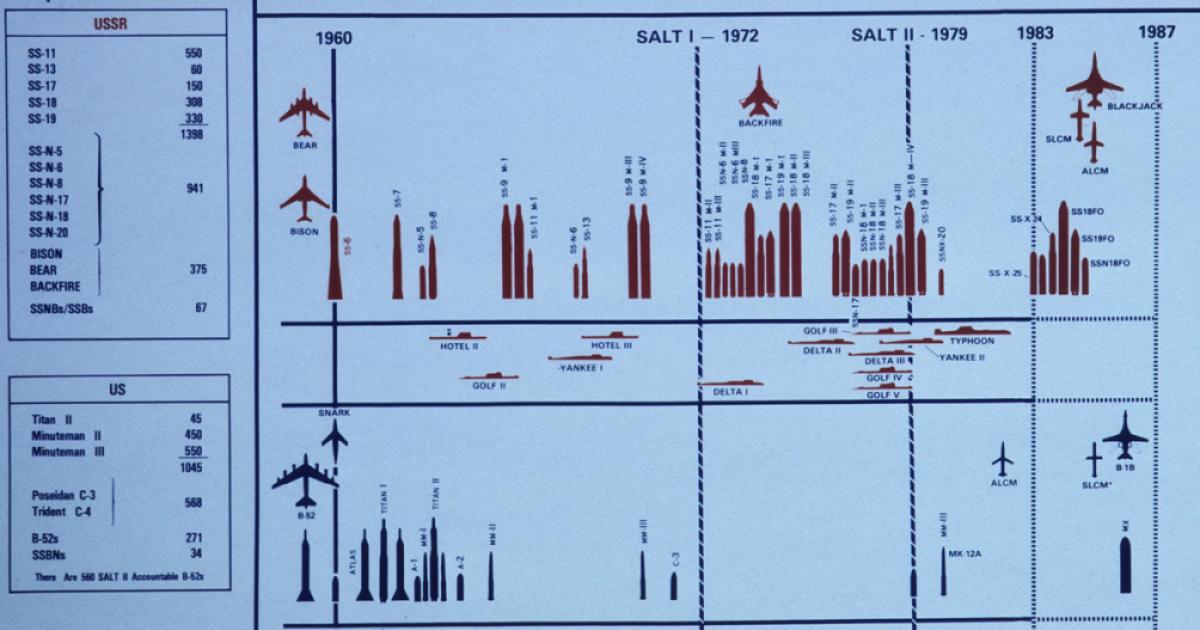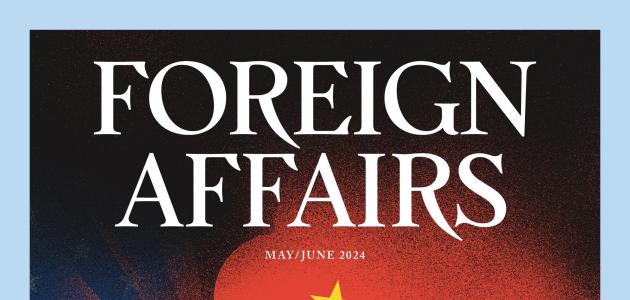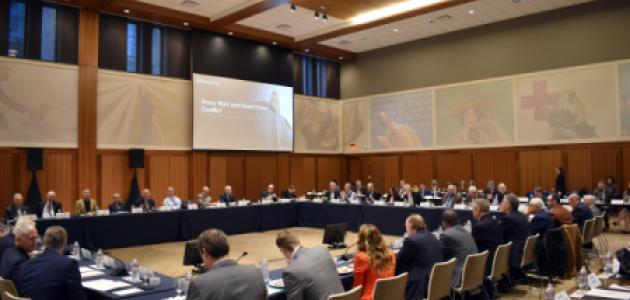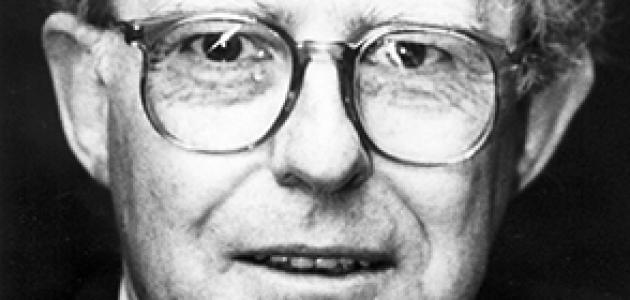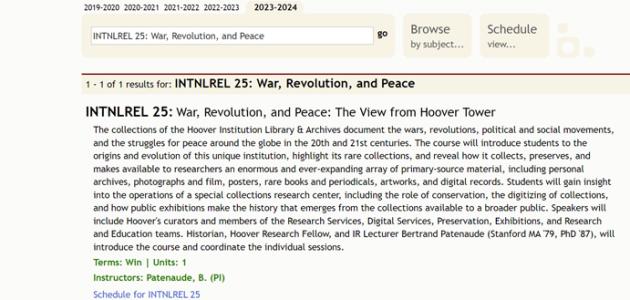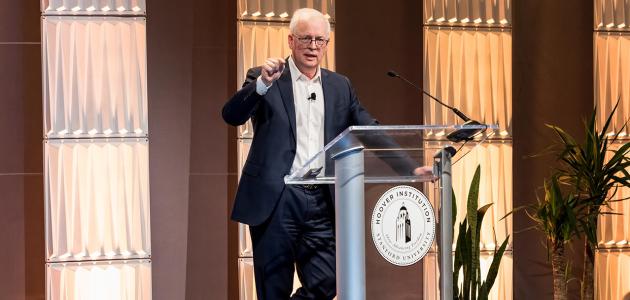
Nuclear diplomacy is a major thread in the historiography of U.S. foreign relations: Ronald Reagan and Mikhail Gorbachev managed to reverse the nuclear arms race in the last decade of the Cold War. The stage was all set before Gorbachev’s arrival. NATO’s deployment of new Intermediate Nuclear Forces in Europe was an important lever to bring the Soviet Union back to the bargaining table. At the same time, Western policy went beyond deterrence in that NATO sought détente, dialogue and a constructive relationship with the Soviet Union.
My book, tentatively entitled Trade against the Cold War: The Gains of Détente in Europe, aims to chart the path of trade across the blocs against the background of the Euromissile crisis in the first half of the 1980s. I investigate the construction of the single biggest pipeline for the transport of natural gas from Siberia to Western Europe (Urengoy-Pomary-Uzhgorod Pipeline) in the context of NATO’s missile deployment; and the focus of my book is on the simultaneity of strength and diplomacy in NATO’s approach towards the Soviet Union.
Hoover has a number of useful collections for my topic: New details about Gorbachev’s drive for arms control emerge from the papers of Vitaly Katayev, who served for more than 17 years in the Defense Department of the Central Committee of the Soviet Communist Party, working under the Politburo member responsible for the Soviet defense industry. Kataev’s meticulous notes and his diaries disclose Gorbachev’s resistance to match Reagan’s ambitions for SDI in 1985. Katayev's files contain documents on potential modifications to the Soviet Union’s SS-18 intercontinental ballistic missile so it could carry 38 warheads, rather than 10. And Kataev’s notes prove that this was not the approach Gorbachev had in mind: he wanted to abolish nuclear weapons, not propagate them.
Likewise, the papers of President Reagan first National Security Adviser Richard Allen are another crucial source at Hoover. The Allen files depict the transition from Carter and Reagan as well as the evolution of Ronald Reagan’s foreign affairs approach over time. Allen’s materials also shed new light on the inner working of Reagan’s foreign policy advisory group during much of the campaign for the Presidential Election in 1980.
The papers of Allen’s predecessor William P. Clarke contain valuable materials on the Reagan Administration’s approach pertaining to the deployment of new Intermediate Nuclear Forces in Europe in 1983, and Clark’s notes disclose the strategy debates with key European allies such as the Federal Republic’s Chancellor Helmut Schmidt. Moreover, Clark’s papers reveal the transatlantic debates over the Reagan Administration’s sanctions against the construction of the Siberian gas pipeline, and they depict the West European determination to keep the Soviet Union engaged in trade despite the Soviet intervention in Afghanistan and the declaration of martial law in Poland.
Last but not least, the papers of former Undersecretary of Defense Fred Ikle are another important source containing evidence relating to the Strategic Arms Limitation Talks, the 1980 presidential campaign of Ronald Reagan, and American defense policies during the Nixon, Ford, Carter and Reagan Administrations.
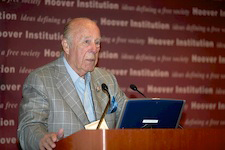
My stay at Hoover also provided me the privilege to interview the Honorable George P. Shultz. I was particularly keen to learn more about his diplomacy in the international arena. Secretary Shultz emphasized the relevance of personal and direct contact between political leaders reiterating that Reagan’s and Gorbachev’s capability for adept personal diplomacy was a major asset in their efforts to transcend the Cold War. Moreover, Secretary Shultz highlighted the importance of trust and predictability as the cornerstone of partnership in security. As a case in point, Shultz referred to his weekly meetings with Soviet Ambassador Dobrynin: “The idea was to get rid of little irritants so that they would not grow into unnecessarily major problems. My idea was: If you see a little weed, get it out before it turns into a real problem.”
The materials I discovered here at Hoover provide fascinating context for my book, and the evidence brings a host of new questions as I embark on research at the Berlin Center for Cold War Studies. Hoover’s staff were immensely helpful: I am grateful to Celeste Szeto: She helped me with administrative affairs. Carol Leadenham pointed me towards useful collections. Eric Wakin and Anatol Shmelev provided advice that greatly improved my research. It was an honor to be awarded a travel grant from the Hoover Archives, and I look forward to my next trip to Palo Alto.
Stephan Kieninger, PhD, is a fellow at the Berlin Center for Cold War Studies and a 2016 Hoover Library & Archives Silas Palmer fellow.




